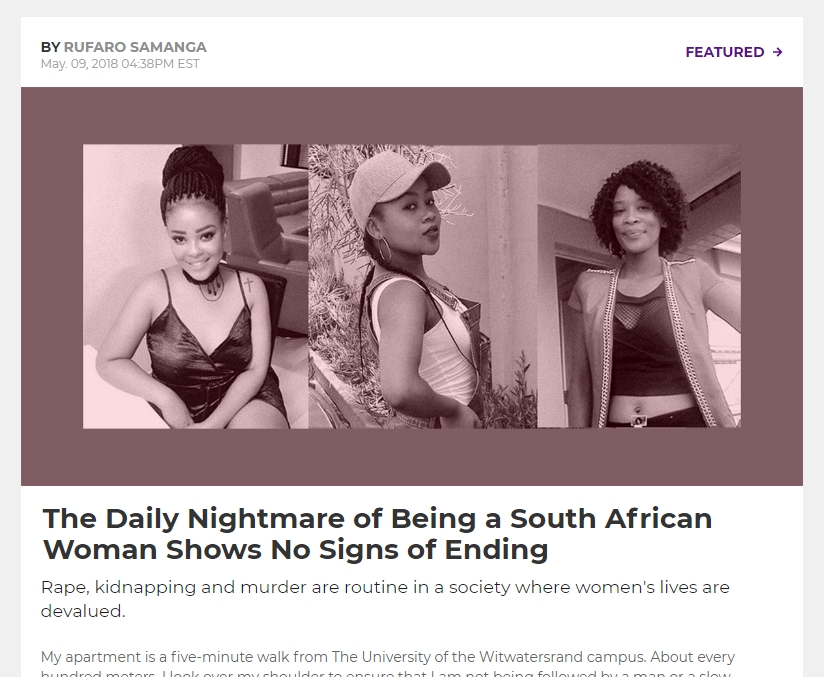When I first arrived in South Africa, just before Christmas last year, a female friend picked me up from the airport. We had met only once, three years earlier, but had stayed in touch ever since. I was happy I could stay the night at hers and leave some of my stuff there until my return from a brief trip to Germany. In the car, on our way from the airport, we were catching up, also about my four months of travelling. In this context my friend mentioned that as much as she loves travelling, it is unimaginable for her to stay in a mixed dorm. Mixed in terms of gender. She does not have enough trust in men. She is a South African woman. That was my first personal, fortunately indirect, exposure to the tragedy of women in South Africa. And I have since realized how privileged I was when my friend allowed me to stay at her house.

If you are planning to come here, you better stop reading now. What follows may sound very discouraging. Having said that, I would like to emphasize, as many in the tourism sector do, that most victims of capital crime in the country are poor, black people in rural areas. Besides, this country has a lot to recommend it, foremost of all its people. The high rate of femicide though is not part of that. Well, this post is not about you as a tourist or me, but about South African women as victims of toxic masculinity in their own country, and worse, in their own homes.
